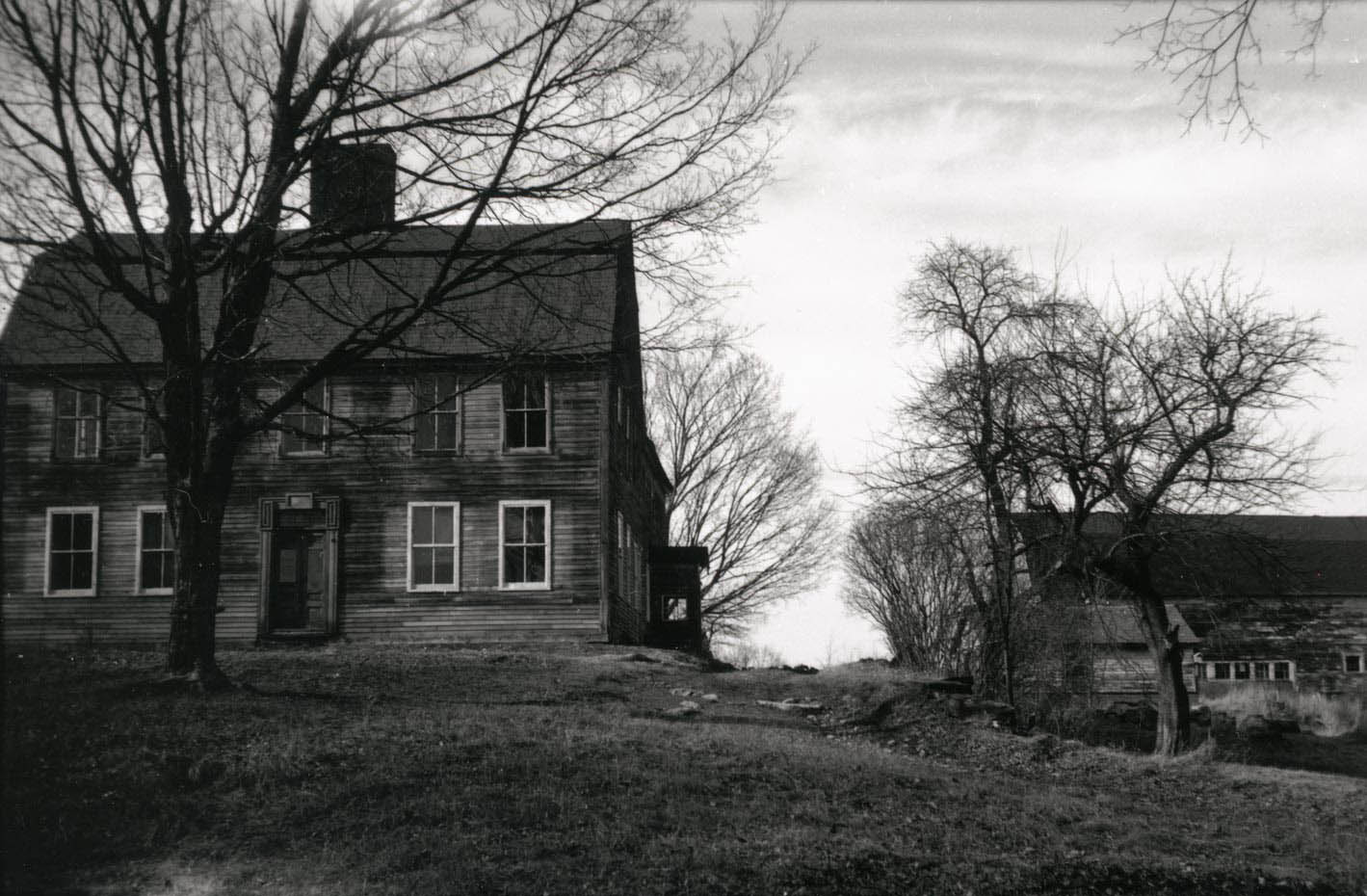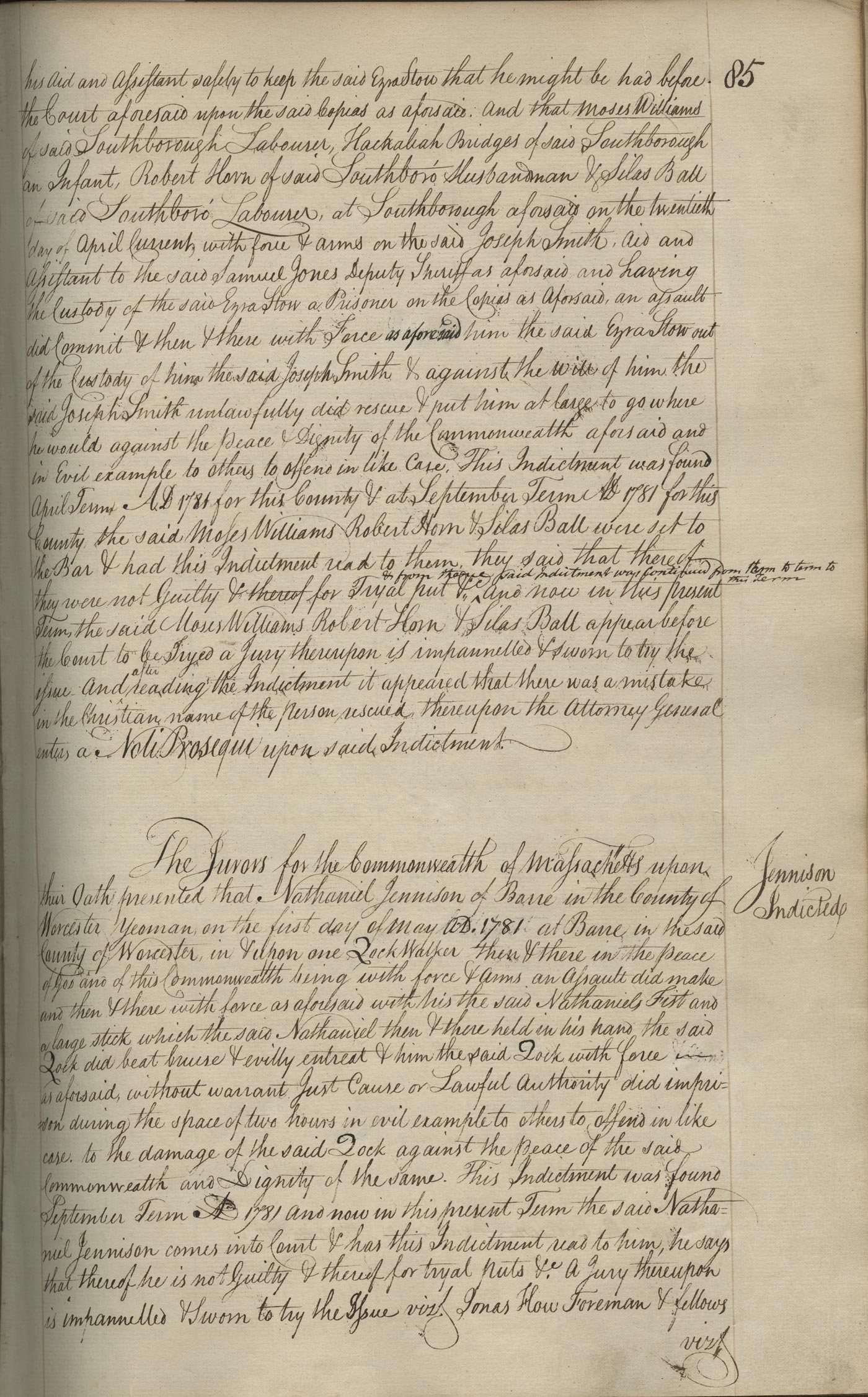
The Quock Walker Cases
In April 1781, Quock Walker, a 28-year-old enslaved man from Worcester County, ran away from his brutal owner, Nathaniel Jennison. Represented by the prominent attorneys Levi Lincoln and Caleb Strong, Walker brought suit against Jennison to win his freedom and obtain civil damages for assault and battery. After a jury trial, Walker won his freedom and £50 in damages.
In 1781, Nathaniel Jennison was indicted on a criminal charge of assault and battery on Quock Walker. Jennison was tried in 1783 before a Worcester County jury sitting with the Supreme Judicial Court, and was found guilty. The trial judge, Chief Justice William Cushing, instructed the jury that “perpetual servitude can no longer be tolerated in our government, and…liberty can only be forfeited by some criminal conduct or relinquished by personal consent or contract…” This case was popularly believed to have abolished slavery in Massachusetts.
“The Quock Walker cases…stand not only as a monument in the history of freedom because they signaled the end of slavery in Massachusetts, but also as a milestone in constitutional history.”
—Hon. Peter W. Agnes, Jr., Massachusetts Appeals Court
Courtesy Judicial Archives, Massachusetts State Archives.


 Back
Back Print
Print